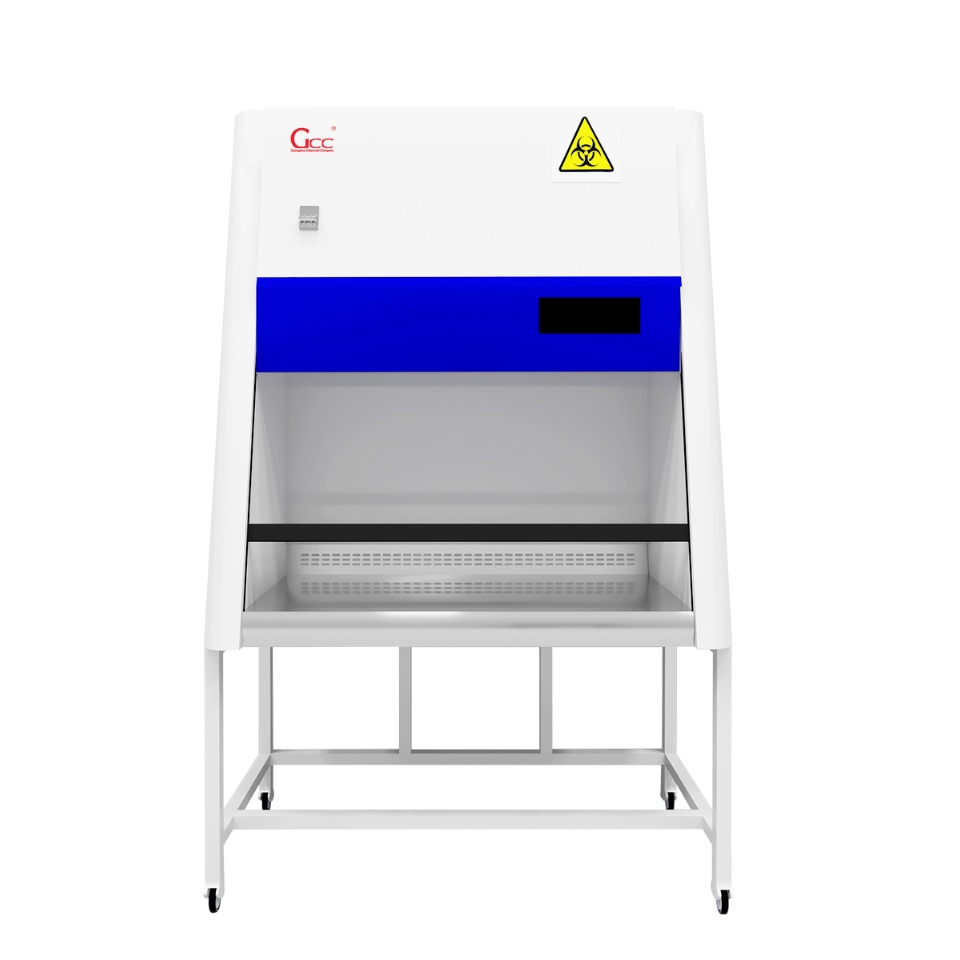Primary Keywords: Biological Safety Cabinet, BSC, pathology laboratory equipment, laboratory biosafety, GCC Pathology, HEPA filtration, biosafety cabinet maintenance
Pathology laboratories require robust containment solutions to ensure both personnel safety and sample integrity. Consequently, Biological Safety Cabinets have become indispensable equipment in modern diagnostic facilities.
I. Definition and Comprehensive Overview
A Biological Safety Cabinet (BSC) serves as a primary containment device that pathology laboratories employ to protect personnel, the environment, and specimens from biohazards. These cabinets utilize High-Efficiency Particulate Air (HEPA) filtration systems to remove particulate contaminants while maintaining an aseptic work environment. Significantly, GCC Pathology designs advanced BSCs that meet the rigorous demands of contemporary diagnostic and research workflows in pathology departments.
Core Function: BSCs provide threefold protection—personnel safety, sample protection, and environmental containment—making them essential for handling infectious materials in pathology settings.

II. Working Principle and Airflow Dynamics
Understanding BSC operation begins with examining their airflow systems. Biological Safety Cabinets operate on the principle of laminar airflow and directional air pressure management. The inward airflow (inflow) effectively prevents aerosol escape from the cabinet, while simultaneously, the downward vertical laminar airflow (downflow) ensures optimal sample protection. Furthermore, HEPA filters, which demonstrate 99.99% efficiency for particles ≥0.3 µm, systematically purify both inflow and downflow air streams. Depending on the cabinet classification, the system either recirculates exhaust air within the cabinet (Class II Type A/B3) or vents it externally (Class II Type B1/B2).
III. Essential Functions and Critical Roles
Modern pathology laboratories rely on BSCs to perform multiple protective functions simultaneously:
- Personnel Protection: The cabinets create effective barriers that shield operators from biohazardous materials during routine procedures.
- Sample Protection: They maintain sterile environments that prevent cross-contamination between specimens.
- Environmental Protection: Advanced filtration systems ensure that exhaust air undergoes proper decontamination before release.
- Aerosol Containment: The cabinets effectively control aerosols generated during procedures like pipetting, centrifugation, and tissue homogenization.
IV. Structural Features and Construction Materials
GCC Pathology engineers BSCs using premium materials that guarantee durability and performance:
- Stainless Steel Work Surface: This corrosion-resistant material facilitates easy decontamination and ensures long-term reliability.
- HEPA/ULPA Filters: Manufactured to EN 1822 standards, these filters deliver consistent performance and regulatory compliance.
- Ergonomic Design: Features including adjustable sashes, built-in UV lamps, and optimized lighting enhance user comfort and operational efficiency.
- Seamless Welding: Advanced manufacturing techniques prevent leakage and ensure airtight integrity throughout the cabinet’s lifespan.
V. Classification System and Technical Parameters
Selecting the appropriate BSC requires understanding classification differences and technical specifications. The following table compares key parameters across common BSC types used in pathology settings:
| Parameter | Class II Type A1 | Class II Type B2 | Class III |
|---|---|---|---|
| Airflow Velocity (m/s) | 0.38-0.51 (Inflow) 0.25-0.38 (Downflow) | 0.51 (Inflow) 0.25-0.38 (Downflow) | N/A (Total Containment) |
| Power Consumption (W) | 600-900 | 800-1200 | 1000-1500 |
| Filtration Level | HEPA H14 (EN 1822) | HEPA H14 (EN 1822) | HEPA/ULPA U15 |
| Typical Applications | General pathology, low to moderate risk agents | Chemical use, toxic materials | High-risk pathogens, maximum containment |
VI. Industry Applications in Healthcare and Research
Biological Safety Cabinets serve critical functions across multiple healthcare and research sectors:
- Pathology and Histology Laboratories: Professionals use BSCs for tissue processing, cryostat sectioning, and fine-needle aspirate analysis.
- Microbiology and Virology Departments: These facilities rely on BSCs for culture handling and drug susceptibility testing.
- Pharmaceutical Industry: Manufacturers employ BSCs for aseptic compounding and vaccine development processes.
- Forensic Laboratories: Analysts depend on BSCs when examining biohazardous evidence materials.
VII. Installation Requirements and Operational Guidelines
Proper installation ensures optimal BSC performance and regulatory compliance. Laboratories must adhere to these critical considerations:
- GMP/ISO 14644 Compliance: Install BSCs in environments that meet cleanroom classification standards, typically ISO Class 5 for cabinet interiors.
- NSF/ANSI 49 Certification: Ensure all Class II BSCs carry proper certification for biosafety applications.
- Strategic Placement: Position cabinets away from high-traffic areas and air currents to maintain airflow integrity.
- Comprehensive Training: Implement rigorous training programs that cover aseptic techniques and emergency protocols.
VIII. Maintenance Protocols and Servicing Recommendations
Consistent maintenance preserves BSC performance and ensures ongoing safety compliance. GCC Pathology recommends implementing these maintenance practices:
- Daily Procedures: Technicians should decontaminate surfaces using 70% ethanol or 10% sodium hypochlorite solutions.
- Monthly Checks: Regularly verify airflow velocity and inspect the integrity of all seals and gaskets.
- Annual Service: Schedule certified technicians to replace HEPA filters and recalibrate monitoring instruments.
- Documentation Management: Maintain comprehensive logs that record all decontamination procedures, filter changes, and performance validation tests.
Proactive Maintenance Tip: Implementing a preventive maintenance schedule significantly extends equipment lifespan and ensures consistent protection levels. GCC Pathology offers customized service contracts that help laboratories maintain compliance with international safety standards.